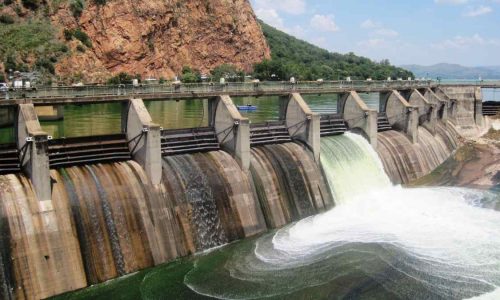Ministry of Energy and Mineral Resources (ESDM) is unveiling a promising prospect for sustainable energy development, citing the vast potential of hydropower in Papua that has captured the attention of nations, including Japan, seeking to embrace green hydrogen, an eco-friendly energy source.
Director General of Electricity and Acting Director General of New and Renewable Energy and Energy Conservation at ESDM, Jisman P. Hutajulu, highlighted Papua’s substantial potential for Hydropower Plants (PLTA) during a press briefing in Jakarta.
He emphasized that the ministry is keen to explore this potential further, considering both the available resources and the various ways hydrogen can be utilized, whether for domestic use or export.
Japan, a frontrunner in the global shift towards green energy, has shown interest in importing green hydrogen from Indonesia. However, negotiations on the price of electricity from hydrogen-producing plants are ongoing. Japan is pushing for a more competitive rate, aiming for a price as low as 5 US cents per kilowatt-hour.
Jisman emphasized the pivotal role of hydrogen in the global energy transition, especially in the context of Indonesia’s ambitious roadmap to achieve carbon neutrality by 2060.
With a diverse range of renewable energy potential, including solar, wind, hydro, bioenergy, geothermal, and ocean-based sources, Indonesia boasts a total potential capacity of 3,689 gigawatts.
“Hydrogen can be a game-changer in several sectors, facilitating the decarbonization of industries that are challenging to regulate, such as long-distance transportation, shipping, aviation, steel production, industrial heating, and manufacturing,” Jisman said.
The primary goal of hydrogen development in Indonesia is aligned with the nation’s commitment to achieving emission reduction targets in its enhanced Nationally Determined Contribution (NDC) and ultimately realizing net-zero emissions.
The government aims to leverage hydrogen development to support the growth of renewable energy, decarbonize transportation and industries, and position hydrogen as an exportable commodity.
Jisman affirmed the government’s dedication to fostering the national hydrogen ecosystem. Infrastructure development is key to engaging stakeholders across the board, creating an environment conducive to the economic viability of hydrogen in Indonesia.
As economies of scale begin to take effect, the expectation is that hydrogen prices will decrease, further propelling Indonesia’s position in the burgeoning global hydrogen market.









